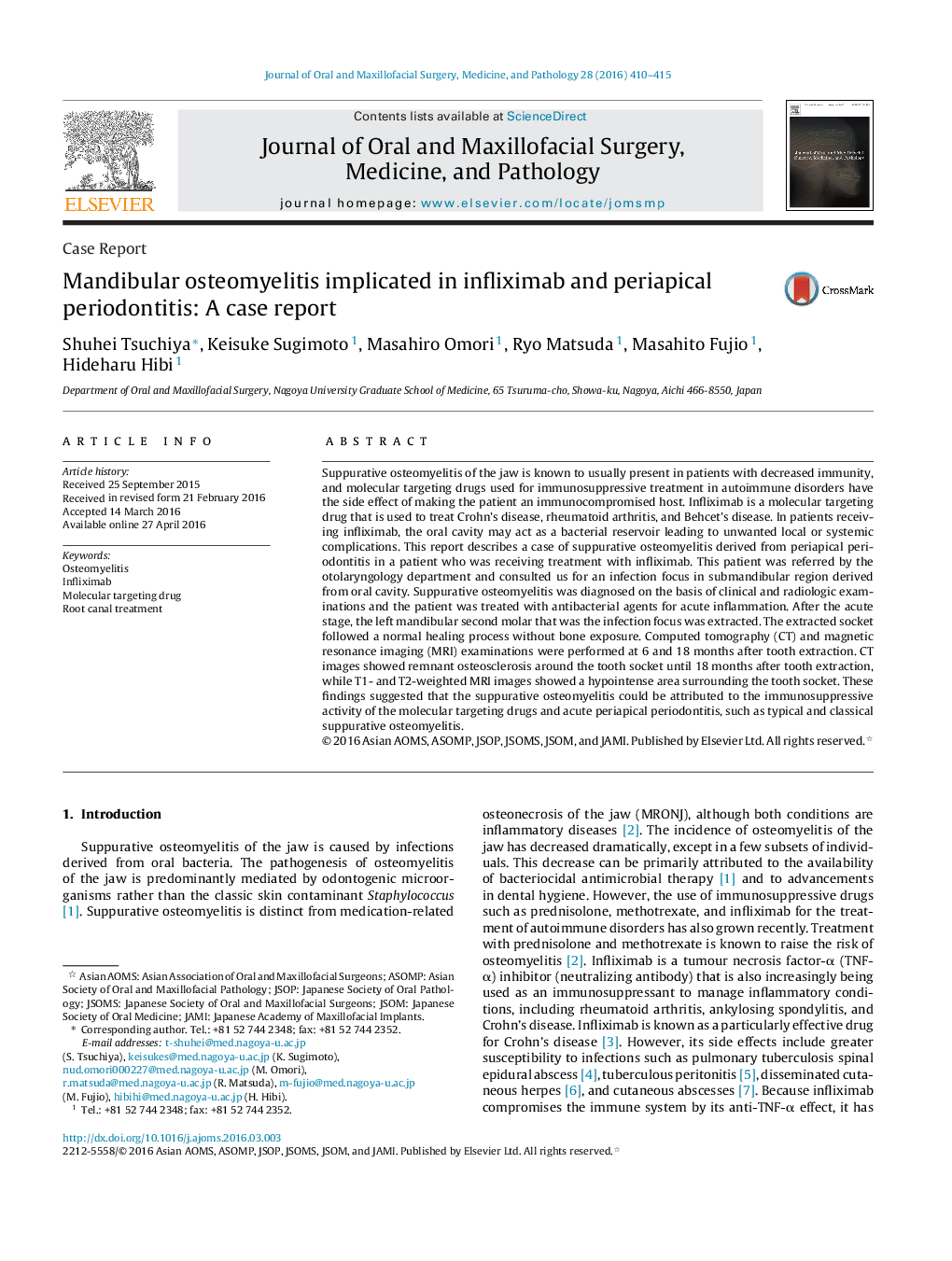| Article ID | Journal | Published Year | Pages | File Type |
|---|---|---|---|---|
| 3159717 | Journal of Oral and Maxillofacial Surgery, Medicine, and Pathology | 2016 | 6 Pages |
Suppurative osteomyelitis of the jaw is known to usually present in patients with decreased immunity, and molecular targeting drugs used for immunosuppressive treatment in autoimmune disorders have the side effect of making the patient an immunocompromised host. Infliximab is a molecular targeting drug that is used to treat Crohn's disease, rheumatoid arthritis, and Behcet's disease. In patients receiving infliximab, the oral cavity may act as a bacterial reservoir leading to unwanted local or systemic complications. This report describes a case of suppurative osteomyelitis derived from periapical periodontitis in a patient who was receiving treatment with infliximab. This patient was referred by the otolaryngology department and consulted us for an infection focus in submandibular region derived from oral cavity. Suppurative osteomyelitis was diagnosed on the basis of clinical and radiologic examinations and the patient was treated with antibacterial agents for acute inflammation. After the acute stage, the left mandibular second molar that was the infection focus was extracted. The extracted socket followed a normal healing process without bone exposure. Computed tomography (CT) and magnetic resonance imaging (MRI) examinations were performed at 6 and 18 months after tooth extraction. CT images showed remnant osteosclerosis around the tooth socket until 18 months after tooth extraction, while T1- and T2-weighted MRI images showed a hypointense area surrounding the tooth socket. These findings suggested that the suppurative osteomyelitis could be attributed to the immunosuppressive activity of the molecular targeting drugs and acute periapical periodontitis, such as typical and classical suppurative osteomyelitis.
